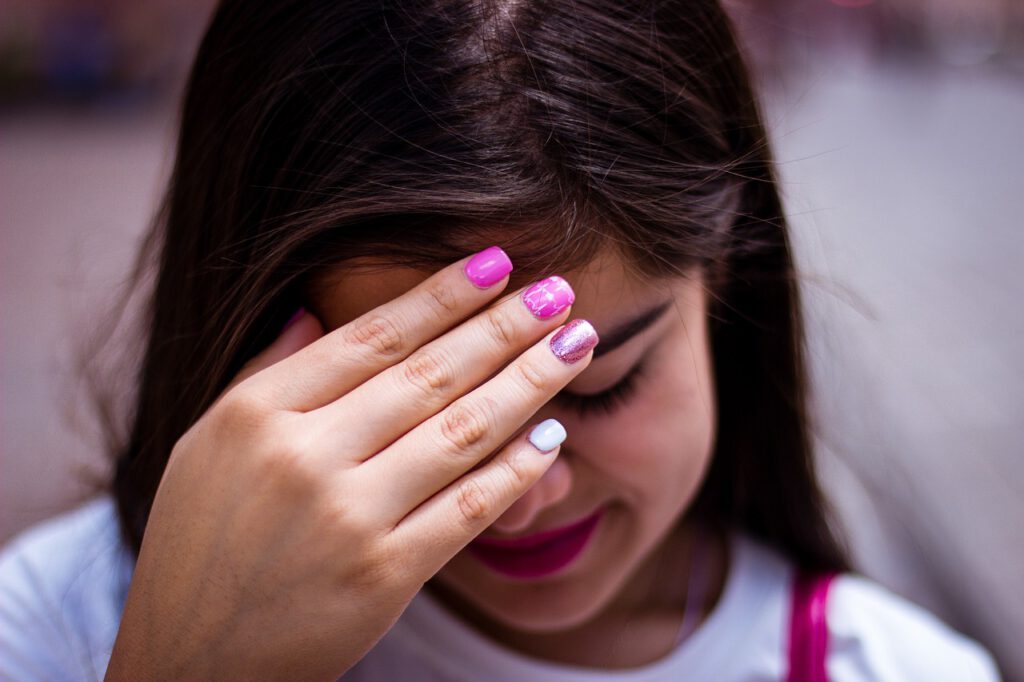Up to 1.5 million young people under 18 may need mental health support due to the coronavirus pandemic

A report published today (01 Oct) by the Centre for Mental Health, is warning about how up to 10 million people, including 1.5 million children and young people under 18, may need mental health support in the aftermath of the coronavirus pandemic. World Mental Health Day takes place on 10th October with the theme ‘Mental Health for All’.
Cllr Ian Hudspeth, Chairman of the Local Government Association’s Community Wellbeing Board, said:
“These stark figures demonstrate the scale of the mental health crisis we face in this country as a result of the coronavirus pandemic.
“Councils play a crucial role in improving and maintaining their residents’ mental health and wellbeing, through adult and children’s social care, supporting their staff, suicide prevention and helping unpaid carers and new parents, as well as by providing safe access to parks and green spaces, supporting schools, youth services, children’s centres and expanding public libraries’ online offer.
“We need a new national focus on helping everyone stay mentally well, including those affected by COVID-19, backed-up by funding for councils to spend with the voluntary and community sector on meeting local mental wellbeing needs.
“This should include a shift in focus and funding away from simply treating mental ill-health and towards a locally-led approach to promoting people’s mental wellbeing throughout their lives.
“The upcoming Spending Review should be used to provide ongoing funding for councils to invest in effective mental health services and support to meet existing, new and unmet demand caused by the pandemic.”
Labour calls for urgent and immediate action to support students’ mental health
Labour has called for the government to take immediate action to support the Mental Health of university students who have to self-isolate due to coronavirus.
Warning that a failure to act could create a mental health crisis for thousands of young people, Dr Rosena Allin-Khan, the Shadow Mental Health Minister, and Kate Green, the Shadow Education Secretary, have called for the government to work with students, universities, and students’ unions to ensure that every young person has the support they need.
 Gavin Williamson, speaking in the House of Commons on 29 September 2020, said:
Gavin Williamson, speaking in the House of Commons on 29 September 2020, said:
“I am aware that going to university can be a stressful time for some students, many of whom will be living away from their family and friends for the first time in their lives.
“This year will undoubtedly see added pressures because of disruption and uncertainty caused by the global pandemic, and we must be mindful of how that will affect the mental health and wellbeing of students.”
“We have asked universities to provide additional help and practical support to students as well.”
Keir Starmer and Kate Green will tomorrow (Thursday) host a Zoom call with students who have recently starting university, and their parents, to hear and discuss the challenges they are facing.
Even before the pandemic, there was evidence that the support available for students was inadequate. Data from last year found that some students were waiting longer than a university term to access counselling, with one in four universities having cut or frozen their budgets for student mental health.
The number of students reporting a mental health condition has risen sharply in recent years. In 2018/19 82,000 students said they had a mental health condition, two and a half times as high as in 2014/15.
Already insufficient services could be pushed to breaking point by the impact of the pandemic. Research has already shown that coronavirus has had a negative impact on the mental health of young people, and many will now be self-isolating in their university accommodation. Young Minds have highlighted that many young people were already “anxious and apprehensive” about the move to university.
Speaking in Parliament yesterday, Gavin Williamson, the Education Secretary, acknowledged that the situation on university campuses will affect the mental health and wellbeing of students, but did not announce any additional support.
Labour called Williamson’s failure to outline a programme of support for students in self-isolation, and others affected by coronavirus, an act of “shocking complacency”, and called for this support to be prioritised.
Labour has called for the government to:
- Outline an emergency package of measures that will support the mental health of students, particularly those who are self-isolating;
- Ensure that existing services are genuinely accessible, with signposting of support for all students to be reinforced;
- Work with students and students’ unions, as well as universities, accommodation providers and local NHS and mental health partners, to deliver support where it is most needed.
Commenting, Dr Rosena Allin-Khan, Labour’s Shadow Mental Health Minister, said:
“The current situation for students across the country requires urgent attention.
“Even before the pandemic, students were placed on long waiting lists for access to mental health services – we cannot have students falling through the cracks now.
“Parents deserve to know that when they send their children to university, they are safe and their wellbeing is supported.”
 Commenting, Kate Green MP, Labour’s Shadow Education Secretary, said:
Commenting, Kate Green MP, Labour’s Shadow Education Secretary, said:
“Students across the country are in an extremely difficult position, and many are now self-isolating with a group of people who are practically strangers.
“The challenges in returning to universities were predictable and predicted, and it was an act of shocking complacency for the government to fail to ensure that students would all get the support they need.
“Gavin Williamson must end his serial incompetence and urgently outline his plans to support the mental health of young people.”
 NUS President Larissa Kennedy said:
NUS President Larissa Kennedy said:
“The past six months have caused untold anxiety, uncertainty and distress for students. For many years NUS has been calling for investment to tackle the student mental health crisis, the chaos that has ensued as campuses across the country have reopened has only made this more urgent. We welcome Labour’s call for this comprehensive package of support for students, particularly for those who find themselves in impossible situations that are unrecognisable from the student experience they deserve.”
“Research that NUS published earlier this month found that student mental health has worsened over the course of the pandemic with isolation and low self-esteem increasingly common. Coronavirus has placed additional stresses on students; 82% are worried about the health of their family members, and 56% have told us they are worried about contracting the virus on campus and 3 in 4 students are worried about how they will pay their rent. The inability of government to get a grip of the situation means this is only worsening; students face growing uncertainty over access to education and their finances, and those that are locked down are going without food and basic amenities. Without immediate action we risk failing a generation. Students deserve better.”
Young Minds, Coronavirus: Impact on Young People with Mental Health Needs
A survey of young people carried out by Young Minds found that 80% of respondents agreed that the coronavirus pandemic had made their mental health worse. Data from 2019 found that some students were waiting as long as three months for counselling, and that a quarter of institutions had frozen or cut their mental health budgets.
The same survey found that many young people were concerned about starting university this year.
“Although there were some young people who were excited and optimistic about starting university, many said they felt anxious and apprehensive, both in terms of their studies and the likelihood of having a full university experience. Young people expressed apprehension about what Fresher’s Week would be like in the current context, and about forming friendships. There was also a great deal of confusion and a feeling of being unprepared for what to expect.”
Data from the Higher Education Statistics Agency (“HESA”) found that the number of students reporting a mental health condition had increased significantly between 2014-15 and 2018-19.
“Within this 82,000 said they had a mental health condition; 4.3% of all home students. The number saying that they had a mental health condition was two and a half times as high as in 2014/15.”
Figures from HESA, sourced from House of Commons Library, Support for students with mental health issues in higher education in England, March 2020, p6
Despite acknowledging the impact that the pandemic, and the consequences for universities, will have on the mental health of students, Gavin Williamson did not announce any additional support for universities.











Responses